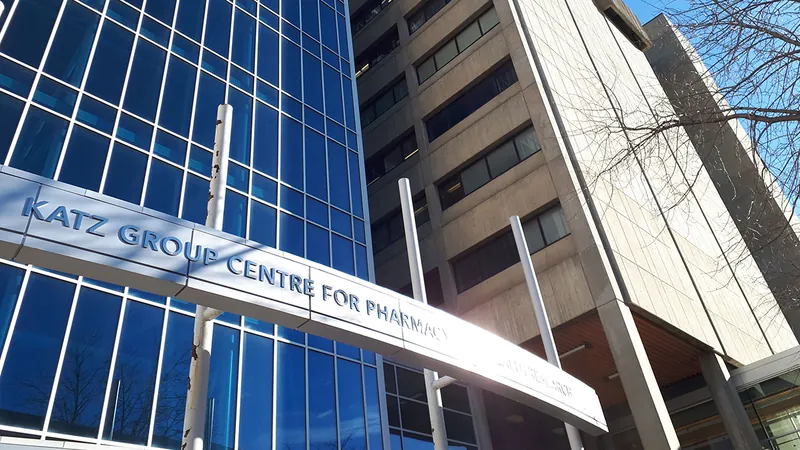
Shocking Discovery: New Anti-Obesity Drug GDF15 Could Revolutionize Heart Health for Diabetics!
2024-11-20
Author: Emma
Groundbreaking Research
Groundbreaking research at the University of Alberta is suggesting that an anti-obesity drug known as GDF15 may not only help with weight loss but also enhance heart function among those battling obesity-related challenges. Currently undergoing human clinical trials, GDF15 has shown promising cardiac benefits in tests conducted on obese mice, demonstrating effects that far exceed mere weight reduction.
Study Details
The study, led by John Ussher — a prominent professor and researcher in pharmacotherapy at the University of Alberta — focused on two groups of obese mice diagnosed with Type 2 diabetes. One group received GDF15, while the other was solely put on a dietary regimen. Interestingly, despite both groups experiencing similar weight loss, the mice treated with GDF15 exhibited significantly superior improvements in diastolic heart function. Ussher noted, 'We ensured that the weight loss was equivalent in both groups, yet the GDF15-treated mice showed remarkable enhancements.'
Understanding Diastolic Dysfunction
Diastolic dysfunction is a condition where the heart struggles to relax properly between beats, often leading to serious complications like diastolic heart failure. This condition is particularly concerning for those with Type 2 diabetes, who face over twice the risk of developing heart disease compared to non-diabetic individuals. Alarmingly, heart disease remains the leading cause of death for diabetics, compounded by the often asymptomatic nature of diastolic dysfunction.
The Need for Awareness
Ussher explained why diabetes management often overlooks heart health: 'When a patient visits their doctor, the focus tends to be on managing elevated blood sugar levels through lifestyle changes or medication, not necessarily on cardiac function.' Tragically, many patients remain undiagnosed for decades—sometimes up to 20 years—until the condition has significantly progressed.
Symptoms and Misattributions
The symptoms of diastolic dysfunction, like fatigue or shortness of breath, are frequently misattributed to other causes, leading to delays in proper diagnosis. Ussher highlighted a stark contrast between the experiences of a 45-year-old diabetic patient with diastolic dysfunction and that same patient at 65, who could struggle with basic activities like climbing stairs due to exacerbated symptoms.
Future Research Directions
Ussher's ongoing work aims to unravel whether the presence of diastolic dysfunction at a younger age increases the risk of heart failure later on. 'Could we potentially instigate preventative changes that would lessen the burden of heart failure in older adults with Type 2 diabetes?' he posed, emphasizing the need for more research in this vital area.
Conclusion
As research into GDF15 progresses, this could mark a transformative chapter in managing obesity and heart health, particularly for the millions affected by diabetes worldwide. Stay tuned for more developments, as this revolutionary drug could change the lives of countless individuals, paving the way for a healthier future!









 Brasil (PT)
Brasil (PT)
 Canada (EN)
Canada (EN)
 Chile (ES)
Chile (ES)
 España (ES)
España (ES)
 France (FR)
France (FR)
 Hong Kong (EN)
Hong Kong (EN)
 Italia (IT)
Italia (IT)
 日本 (JA)
日本 (JA)
 Magyarország (HU)
Magyarország (HU)
 Norge (NO)
Norge (NO)
 Polska (PL)
Polska (PL)
 Schweiz (DE)
Schweiz (DE)
 Singapore (EN)
Singapore (EN)
 Sverige (SV)
Sverige (SV)
 Suomi (FI)
Suomi (FI)
 Türkiye (TR)
Türkiye (TR)